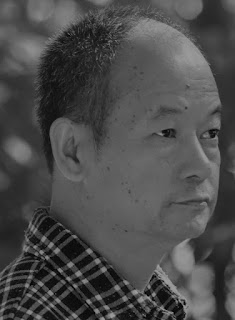Review by Ramesh KC
Translated by Desh Subba
Edited by Osinakachi Akuma Kalu
Desh
Subba published a book “Philosophy of Fearism” the subtitle “life is conducted,
directed and controlled by fear.” Depicts how he (subba) logically proves how
‘fear’ is at the center of human action(s). By that he means that humans and
the universe is controlled by fear. Rightly from the ancient era, fear has been
a matter of intellectual discuss. However, Subba systematized it, pointing in
his notion “ism” the relevance of fear
in man’s struggle
One of the theist
existentialist thinkers Soren Kierkegaard studied about ‘fear and anxiety’ from
the existential view point. He opined that between fear and anxiety, people
seek existence. His important book is ‘Fear and Trembling’. Existentialists
though discuss fear based on violence and its impact on the people. The Second
World War posed fear on people is a kind of such an existential fear. Hence, Subba
the propounder of Philosophy of Fearism categorized fear pointing out how human
race suffered through it, and how it also helped in shaping human[ity]. For him
also, fear helped in human evolution through agricultural age, industrial age,
modern and post modern age. In the primitive age: people felt secured when they
have sharp weapons but in recent time atomic weapons and other sophisticated
arsenals surphises. It is not enough to speak of fear from the psychosis view point.
From the biological perspective, it is also hereditary.
In reality it is obvious that humans
are fearful. Without fear, the world cannot move forward. The philosopher U. G.
Krishnamurti has it that, “we are not close to each other as a result of love
but fear.” Fear helps us to live communally and to search for a better way of
life so as to live a fearless life. The idea of police, court and law came as a
result of fear. Nevertheless, there are still insecurity challenges in human
existence. The structure of the human body determines human character. Fear is
one of those vital factors that structures man. If through gene editing we
remove fear from man, the humanperson might be very dangerous.
Since biologically, the brain is
structured in such a way that it stimulates fear, psychologically fear could be
minimized. Right from the primitive age, man lives in fear and exercises it because
he is made in that form. Subba philosophically interpreted this universal truth
through his notion of philosophy of
fearism. Nevertheless, he does not have the fearless technique. The Hindu
religion has taken fear, slumber, food and sex is a natural aspect of man which
biologically is inherent in man. It is an important task to examine its ism (a la fear). That living things are
intimately living together with it is another vital truth. In the book Philosophy of Fearism there are many
logical arguments with epistemological tones proving this point. In recent time
philosophers claim that, “human being cannot be changed culturally and
psychologically. Any attempt to change human must be biologically through
genetic engineering.
Thus, what is the limitation of Philosophy
of Fearism? Interaction alone cannot solve the problems of man by bringing
about a fearless society. To solve a biological problem, a biological
means/methods ought to be applied.
To be fearless and discussing
philosophy of fearism is not the same thing. Invention doesn’t or is not the
only way of making the world fear free. Though intellectual discussion, we see
life and the world we live in a broader sense through different and new angles.
Building on this backdrop, the author did a successful
work because; he took various philosophical lenses to examine the reality of fearism in a 370 treatise.


